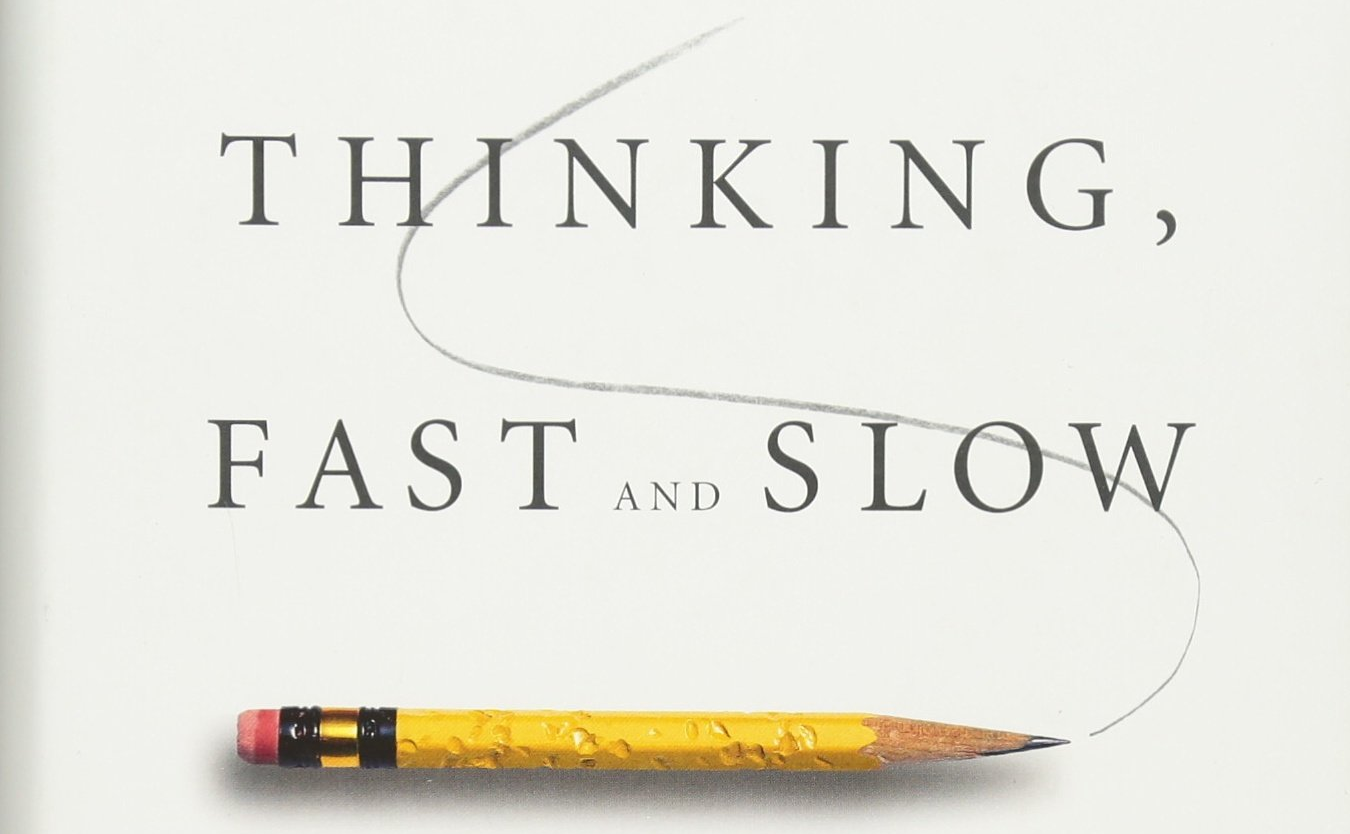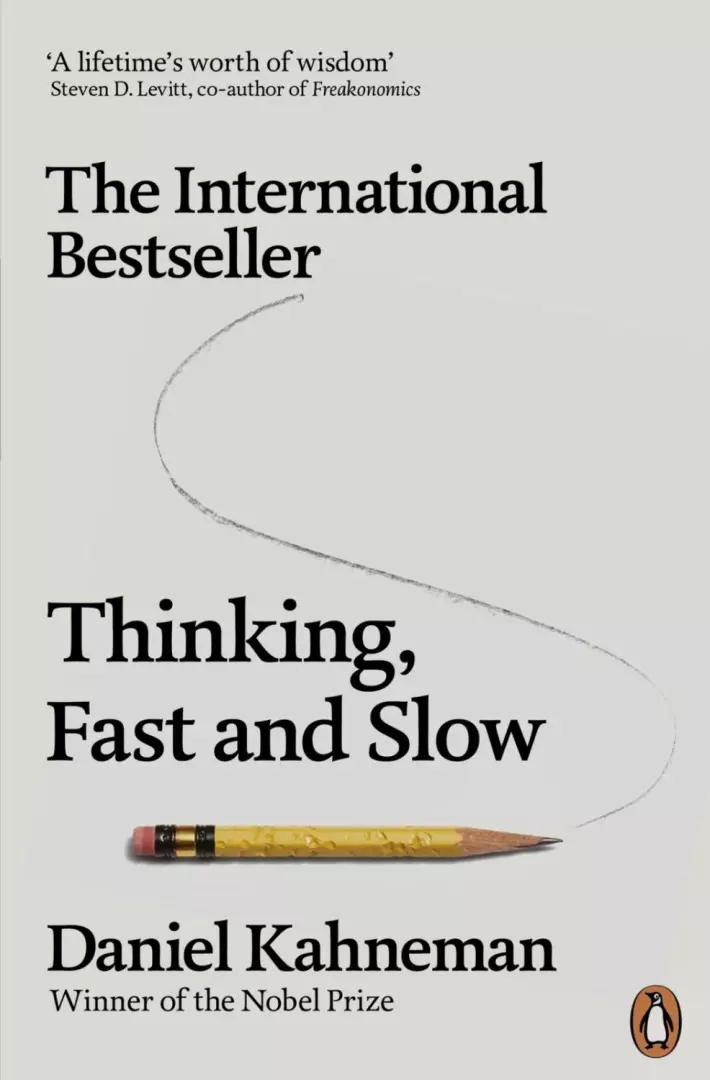Comments
- No comments found

Thinking, Fast and Slow is an incredible book written by Nobel laureate Daniel Kahneman.

If you came to me and said, "Alok, I dropped out of College but I've read "Thinking Fast and Slow" and have understood it, I may not reprimand you.
This is a Nobel Prize winner giving away all his secrets in a single book and the knowledge, facts, data, experiments and trivia inside are University Degrees all packed into this neat package!
Heads-up: This book is taxing. You need to read 5-7 pages a day max and ingest, think, revise and then continue reading.
Why you must get it:
The crux of the book is about how humans think and make decisions. There are economic, psychology & real-life examples all through.
In the words of the author "Much of the discussion in this book is about biases of intuition."
The stunning insights include:
How Judges make decisions based on when they ate!
Our impulse to make quick decisions which are usually wrong.
"A bat and ball cost $1.10. The bat costs one dollar more than the ball. How much does the ball cost?"
How friendly Stock Symbols help a Company.
Moses Illusion "How many animals of each kind did Moses take into the ark?”
Anchoring effects explained - the case of the limited sales of Campbell soup.
“The emotional tail wags the rational dog.”
“Alar scare” of 1989 illustrates a basic limitation in the ability of our mind to deal with small risks: we either ignore them altogether or give them far too much weight—nothing in between. “He won’t go far as an academic; too many tattoos.” (mental roadblocks)
The case of the broken plates and how that affected price perception
The INCREDIBLE section on the "regression to the mean"
How praise and rebuke have no correlation to performance. "But the inference he had drawn about the efficacy of reward and punishment was completely off the mark. What he had observed is known as regression to the mean, which in that case was due to random fluctuations in the quality of performance."
Highly intelligent women tend to marry men who are less intelligent than they are.
Following our intuitions is more natural, and somehow more pleasant, than acting against them. Taleb suggests that we humans constantly fool ourselves by constructing flimsy accounts of the past and believing they are true.
The power of "the Halo effect" - If we think a baseball pitcher is handsome and athletic, for example, we are likely to rate him better at throwing the ball, too. If we think a player is ugly, we will probably underrate his athletic ability.
It is clear that for the large majority of individual investors, taking a shower and doing nothing would have been a better policy than implementing the ideas that came to their minds.
Tetlock writes. “In this age of academic hyperspecialization, there is no reason for supposing that contributors to top journals—distinguished political scientists, area study specialists, economists, and so on—are any better than journalists or attentive readers of The New York Times in ‘reading’ emerging situations.”
The more famous the forecaster, Tetlock discovered, the more flamboyant the forecasts. “Experts in demand,” he writes, “were more overconfident than their colleagues who eked out existences far from the limelight.”
The hedgehog and the Fox theory
The brief pleasure of a cool breeze on a hot day may make you slightly more positive and optimistic about whatever you are evaluating at the time. The prospects of a convict being granted parole may change significantly during the time that elapses between successive food breaks in the parole judges’ schedule.
A more general lesson that I learned from this episode was do not simply trust intuitive judgment—your own or that of others—but do not dismiss it, either.“Whenever we can replace human judgment by a formula, we should at least consider it.”
How underestimation is a mental defect created by out boxed-in thinking. "If you were allowed one wish for your child, seriously consider wishing him or her optimism."
The evidence suggests that optimism is widespread, stubborn, and costly.
President Truman famously asked for a “one-armed economist” who would take a clear stand; he was sick and tired of economists who kept saying, “On the other hand …”
The concept of the "premortem"
Prospect theory at work
Brain recordings also indicate that buying at especially low prices is a pleasurable event.
The endowment effect.
Loss Aversion and how we curate our behaviour to obey it.
The brains of humans and other animals contain a mechanism that is designed to give priority to bad news. By shaving a few hundredths of a second from the time needed to detect a predator, this circuit improves the animal’s odds of living long enough to reproduce. However, our brains are not designed to reward generosity as reliably as they punish meanness.
"Denominator neglect"
The sunk-cost fallacy keeps people for too long in poor jobs, unhappy marriages, and unpromising research projects.
“The MPG Illusion" Case Study
"Tourism is about helping people construct stories and collect memories".
"The photographer does not view the scene as a moment to be savored but as a future memory to be designed."
"This is the essence of the focusing illusion, which can be described in a single sentence: Nothing in life is as important as you think it is when you are thinking about it."
The case of California climate as a driver of happiness.
The mind is good with stories, but it does not appear to be well designed for the processing of time.
Alok is the Co‐Founder & CEO of Games2win India Pvt Ltd. He is a serial entrepreneur who supports great ideas by partnering with the best people to make them come to life. His previous start up - Mobile2win was acquired by The Walt Disney Company (China) and by Norwest Venture Partners (India). Alok holds an MSc of Commerce in International Business from Campion School, Mumbai.
Leave your comments
Post comment as a guest